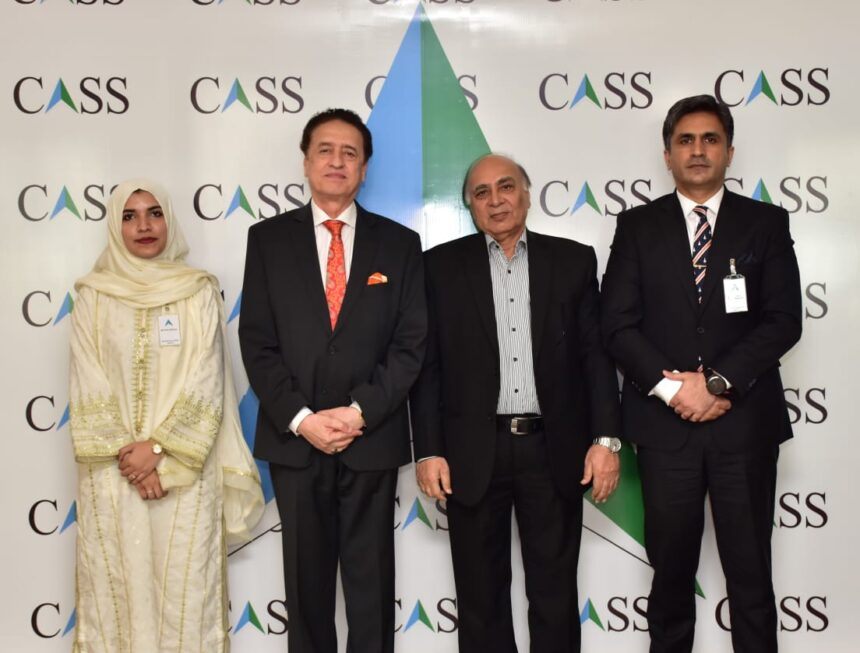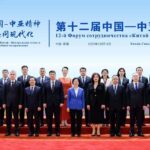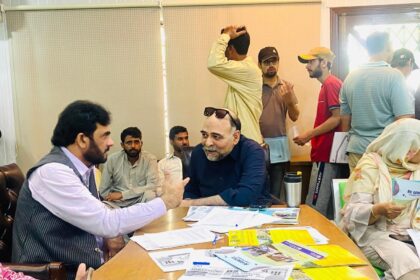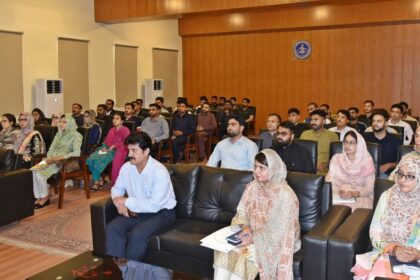On 5 November 2025 the Centre for Aerospace and Security Studies (CASS) Lahore convened a roundtable on Biological Risks, Global Conventions and Pakistan’s Options, bringing together academics, domain experts and practitioners to examine contemporary biosecurity challenges.
Ms Ezba Walayat Khan, Research Assistant at CASS Lahore, delivered the opening address and set the agenda for a discussion focused on national preparedness, international obligations and policy choices that affect Pakistan’s biological resilience.
Prof Dr Syed Javaid Khurshid opened the substantive sessions by tracing the evolution of the 1972 Biological Weapons Convention and underlining how the absence of a verification mechanism weakens collective confidence. He emphasised the dual use nature of modern biosciences and warned that advances in biotechnology create both immense benefits and misuses that complicate biosecurity and response efforts. Citing the COVID-19 pandemic he noted the practical difficulty of distinguishing natural outbreaks from deliberate incidents and the implications for attribution and international trust.
In a second session Dr Khurshid outlined emerging global challenges in implementing the BWC and proposed concrete national options. He urged enhanced confidence building through education programmes, improved detection and diagnostic capacities at national, regional and international levels, and stronger collaborative frameworks. The Russia-Ukraine conflict was mentioned as having renewed global attention to biological weapons concerns. He also commended Pakistan’s legal framework, including the BWC Act, Export Control Laws and the Biosafety Rules 2005, and recommended measures such as establishing a vaccine bank, promoting local production of essential vaccines and pursuing inclusion in export control arrangements like the Australia Group and the Wassenaar Arrangement to bolster national biosecurity.
Air Marshal Asim Suleiman (Retd), President CASS Lahore, observed that a rapidly changing security landscape requires stronger global and national responses to biological threats. He highlighted risks from accidental releases, potential weaponisation and weak international oversight, while recognising Pakistan’s efforts to meet its BWC obligations through laws, institutions and responsible scientific practice. He urged Pakistan to further strengthen resilience by pursuing ethical innovation and balanced diplomacy to advance equitable global preparedness and collective biological security.
The seminar concluded with a lively interactive session that focused on Pakistan’s BWC engagement, biosafety gaps and the urgent need to develop stronger biotechnology and pharmaceutical capacity for national health security. Participants praised CASS Lahore for facilitating an informed discussion and stressed that practical policy steps are needed to translate legal commitments into effective biosecurity outcomes.











